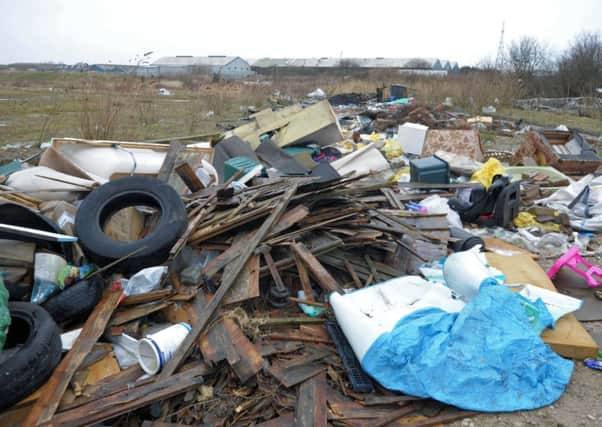Councils want more powers to combat fly-tipping


The Government is being urged to give local authorities the ability to issue on-the-spot fines or fixed penalty notices to those who dump rubbish in a bid to tackle the 711,000 incidents putting a huge strain on budgets and resources on an annual basis.
It comes as the Local Government Association (LGA), which represents almost all of the local authorities in the country, revealed fly-tipping is costing councils £36m every year.
Advertisement
Hide AdAdvertisement
Hide AdWakefield Council leader Peter Box, the LGA’s environment spokesman, said: “It is utterly unacceptable and inexcusable for anyone to dump waste illegally and councils know how much people hate seeing this sort of vandalism on their doorsteps.
“Not only does fly-tipping create an eyesore for residents, it is also a serious public health risk, creating pollution and attracting rats and other vermin.”
The LGA says that having the ability to fine people caught dumping rubbish would avoid councils being left out of pocket.
According to evidence from councils, courts award only partial costs and prioritise the payment of compensation above prosecution costs.
Advertisement
Hide AdAdvertisement
Hide Ad“Local authorities are remarkably effective and efficient in tackling fly-tipping but the current system works against them,” Mr Box added.
“We need a new streamlined system which helps councils and hurts those doing the dumping. The huge amount of effort put into preventing and tackling fly-tipping is having a real impact –but new powers would ensure it goes even further.”
The LGA held up Stoke-on-Trent, which is fielding 400 complaints a month about items ranging from tyres and cars to baths, as an example of the worst-affected areas.
Earlier this year the North Yorkshire branch of the Countryside Alliance called for action on fly-tipping after landowners were forced to clear piles of waste dumped in their gateways, fields and hedges over the Easter weekend.